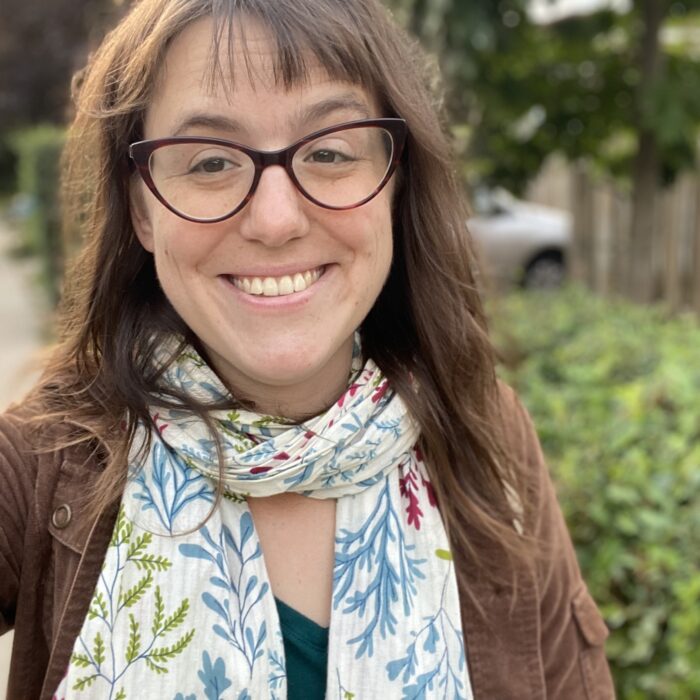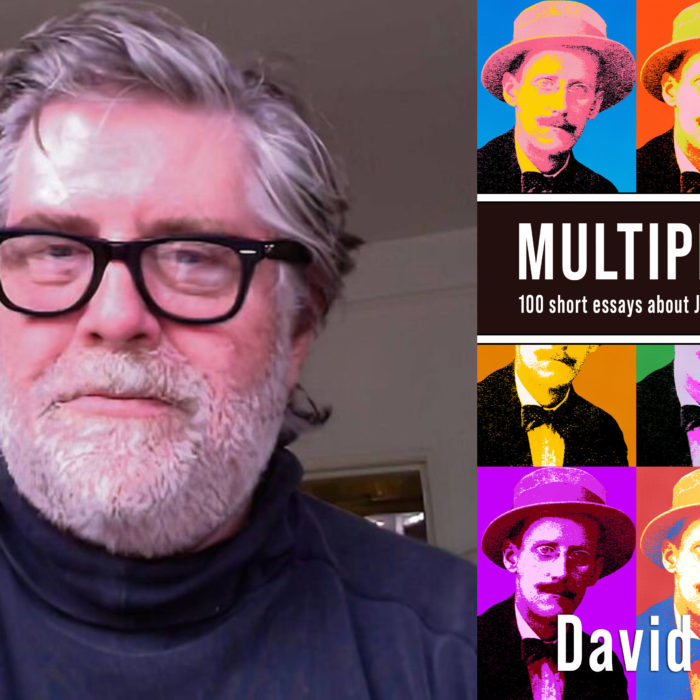You have no items in your cart. Want to get some nice things?
Go shopping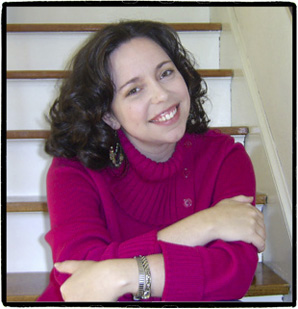 Kimberly Rae writes largely for magazines and curriculums but also writes fiction. She lives in Lenoir, North Carolina with her husband and young children. This interview highlights two of her self-published novels, Stolen Woman and Stolen Child, and her thoughts on writing.
Kimberly Rae writes largely for magazines and curriculums but also writes fiction. She lives in Lenoir, North Carolina with her husband and young children. This interview highlights two of her self-published novels, Stolen Woman and Stolen Child, and her thoughts on writing.
You’ve written two novels, Stolen Woman and Stolen Child, with a third book to follow. Can you tell me about this series?
Stolen Woman features a college-aged girl Asha, who is Bangladeshi but who was adopted and now lives in the West. One summer, she goes to India to work with orphans. There, Asha meets a 16-year-old girl who had been trafficked and she is determined to rescue her. Mark, her boss for the summer, and to whom she’s secretly attracted (of course you’ve got to have romance in there), tells her that he’ll take care of it and that she shouldn’t get involved, but she decides that he isn’t planning to help. Asha sneaks out to meet with this girl in secret and try to plan her rescue. The question is, can she help rescue this girl or will she be trafficked herself?
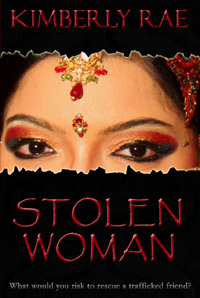 In Stolen Child, Asha goes back to Bangladesh to find her birth family and to find out why they gave her up. Babies have been disappearing from her home village, and she uncovers a child trafficking scandal. Woven through it is the continued romantic tension between Asha and Mark.
In Stolen Child, Asha goes back to Bangladesh to find her birth family and to find out why they gave her up. Babies have been disappearing from her home village, and she uncovers a child trafficking scandal. Woven through it is the continued romantic tension between Asha and Mark.
Why did you decide to write about human trafficking?
If you google “human trafficking”, over 12 million sites come up. It’s a huge subject right now, one people really care about, but it’s such a big issue that they don’t know where to start. I found a few books that focused on the problem, but I wanted a book that focused on the hope and would give women real, lasting freedom. I couldn’t find that book anywhere. Someone once said, “If you can’t find the book you want to read, you have to write it.” So I did. I have been writing for about ten years now, mostly for magazines and curriculums, but I’d thought about writing a novel. My mother asked me, “If you could write about anything, what would it be?” and by the end of the day I’d written three chapters of this book. I knew it was the book I was meant to write.
What’s the biggest thing you’ve learned from writing fiction?
You can make a big difference through fiction because you can convey truths about reality. People see themselves in stories. I find non-fiction hard to digest at times, but I’ll learn things quicker through a fictional story because I can relate to the characters. Writing fiction allows me to express life lessons I’ve learnt. The main character is young, idealistic; she wants to change the world. I went to Bangladesh as a 22-year-old, and I discovered that the world was too big for me. What do you do with that? What do you do with the fact that you can’t fix everything, you can’t save all the street kids, you can’t rescue all the trafficked women? I put that into a story, which I felt would have a bigger impact than just an account of my own experiences.
Tell me about the process of publishing the first book.
It was a learning curve, especially since publishing has drastically changed. I looked into traditional publishing, but it takes a long time to get accepted, and even then it’s about a year before the book is on the shelves. Human trafficking is a huge subject right now, and who’s to say what’s going to be the big subject next year? I decided to use Print On-Demand (PoD) through an Amazon-based company called CreateSpace. I had to do more of the leg work, but it also meant I was more in control of the specific details, like the cover art. I’m pleased with how it turned out. I do have an agent to help introduce it to the mainstream market, hopefully in the next few years, but PoD allowed me to publish it while human trafficking was in the spotlight. Also, in this economy, publishers look for PoD books that are already doing well because they know there’s less risk in taking it on. That was the reason I did it, so I could say, “I’ve sold this many copies.”
Do you recall how your interest in writing originated?
I have stories that I wrote as a ten year-old about teddy bears rescuing people from fires. My parents gave me a kids’ typewriter, and I would type out my own version of Nancy Drew stories. I’ve always been telling stories. I’m not very good at small talk, but I love to throw a story into conversations.
What do you think makes good writing?
I’d say passion. The best books I’ve ever read are by authors who write about what’s important to them or what has strongly affected them. You can tell when someone writes just to make money – it’s often entertaining but it doesn’t always impact people. Good writing happens when you put on paper what you deeply care about and share it with the world.
How do you conquer writer’s block?
Actually, I rarely experience writer’s block because, with a toddler at home, I can’t write often enough to get stuck. Lots of ideas, not enough time. If I sense a scene is becoming flavourless, I lay down for 20 minutes, and that helps me picture the scene, almost like watching a film. The words come then, and I get up and write them down.
Tell me about the planning process for these novels. Do you make an outline first?
For the first book I didn’t plan ahead. I wrote the most important chapters first and then filled in the rest. The subsequent books continue the storyline, so I had to be more organised. I have chapter topics picked out for the third book. It’s gone from mostly random to a bit less random because I have to tie up loose ends, and it’s my last chance to say what I want to say in the series.
Where do you get ideas for your characters?
The main character’s story is based on my own experiences in Bangladesh and what I learned about the world. The male character I based a lot on my husband because I know his brain better than any other man’s. We’re both middle children, very non-confrontational, so I thought, “If we were much more intense, what would we be like?” I had so much fun writing their argument scenes. I wondered what it would sound like if we just spit out whatever we were thinking. It was actually good therapy. I’d show my husband a scene and he’d laugh and say, “Wow, spot on.”
Describe the atmosphere most conducive for you to write.
I curl up in the corner of the sofa and type away. I’m worthless at a desk – my back hurts and it feels too much like work. I used to be a notebook-and-pen person but I type faster than I write. My best writing time is the middle of the night, alone with my thoughts, although I’m often writing with Thomas the Tank Engine in the background, or with my kids asking questions. It helps keep me grounded, because as I write about heavy subjects like human trafficking, hearing “Mommy, I need to go potty,” brings me back to Earth.
What’s one of your favourite books?
Redeeming Love by Francine Rivers. I love how she makes a difference with her stories. She was my inspiration. A friend who had a difficult childhood read that book, and she told me once, “This book changed the way I see God.” I thought, “Wow, a book of fiction can do that. I want to do that with my stories.”
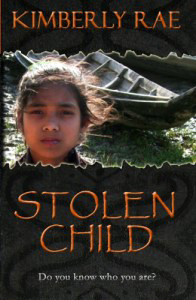 Any advice for aspiring writers?
Any advice for aspiring writers?
Don’t freak out when people say no. Nine times out of ten your work will be rejected, but don’t take it personally because editors look for something specific. Write what you want to write and keep looking for the right audience. Also, learn to love constructive criticism. When I started writing, if people didn’t love it, I’d think, “Oh no, I’m a terrible writer!” I finally learnt that if people gave me suggestions and I actually followed them, my writing improved. Now, before I submit a manuscript I send it to at least 30 people. I don’t use all of their ideas, but I learn from their perspectives.
Stolen Woman and Stolen Child are available in paperback and e-book on Amazon UK.



